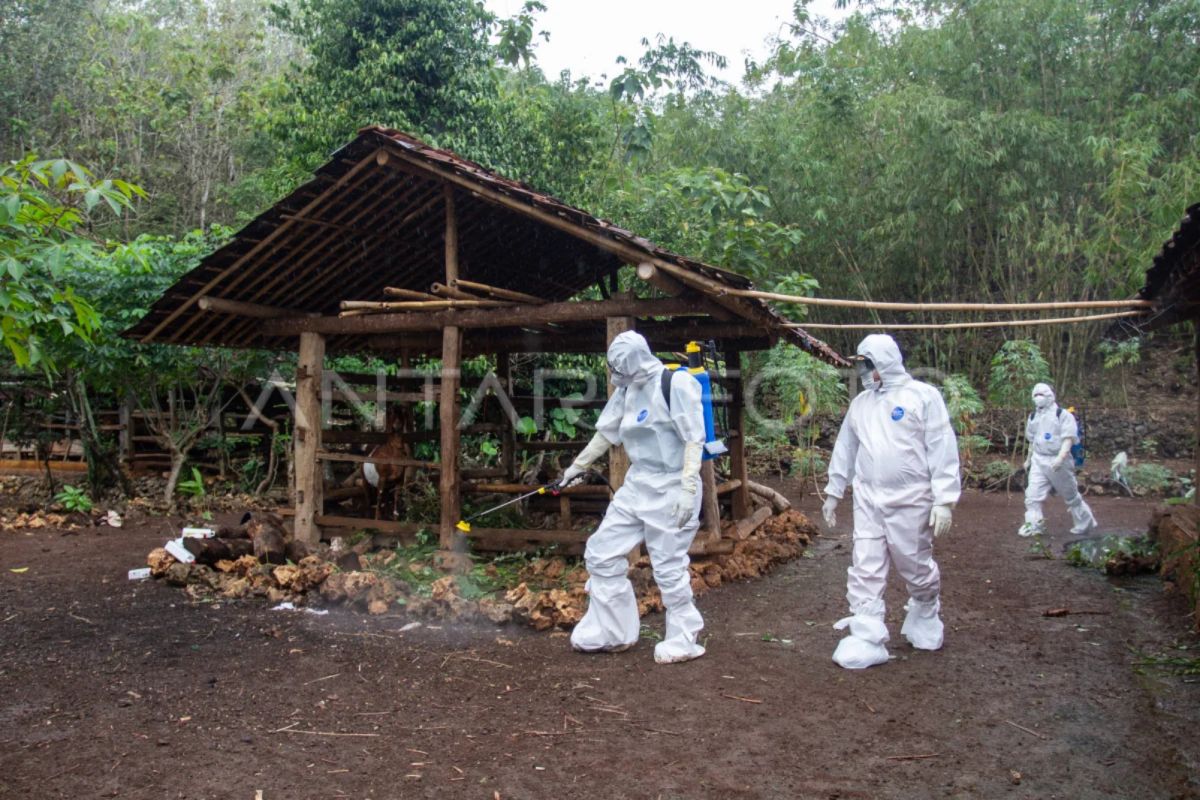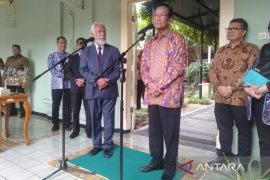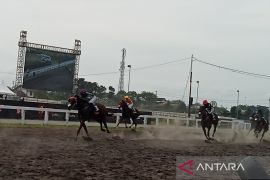"However, we cannot force them because it is their land," veterinary medicine associate for animal husbandry and animal health at DPKP, Agung Ludiro, said in Yogyakarta on Friday.
The spores of the Bacillus anthracis bacteria can live for quite a long time, even for decades, in soil, he informed. Therefore, the use of contaminated land has been strictly prohibited.
The areas suspected of being anthrax spore hotspots are usually former slaughterhouses or livestock cages that have been confirmed positive for anthrax, Ludiro added.
To check land exposure to anthrax, the Wates Veterinary Center (BBVet), together with the animal husbandry service of each district in Yogyakarta, has been conducting yearly surveillance by examining soil samples at designated locations.
"Officers take soil samples at locations suspected of spores. If they find spores in one location, they trace to other nearby locations because there is a possibility that the spores could be carried by water or shoes," he explained.
After it is confirmed that a soil sample contains anthrax spores, the land is plastered or coated with cement and a sign is put up to inform people that the location has been exposed to anthrax, Ludiro added.
"We always inform that the land covered with cement may have spores in it. So please do not dismantle it or the spores will appear again," he said.
So far, people in areas that have recorded anthrax cases, such as Kulon Progo and Gunungkidul, are still complying with the warning, he said.
He informed that anthrax exposure caused 12 livestock deaths and 1 human death in Gunungkidul district in June 2023. BBVet and the Gunungkidul Animal Husbandry and Health Service immediately conducted a sample test of soil suspected of having been exposed to anthrax.
"The inspection process in the laboratory is still ongoing to determine the spore points. We are preparing the locations to be cemented," he said.
Chairperson of the Yogyakarta Veterinary Association (PDHI), Aniq Syihabuddin, called for strengthening the implementation of biosecurity in cattle and goat cages in Gunungkidul district to prevent cases of anthrax in the area from recurring.
Biosecurity can be bolstered, among other things, by improving the cleanliness and standard of livestock cages, as some of them still have dirt floors that carry the risk of anthrax transmission.
"Traditional cages that are wet are difficult to clean and they are also unhygienic. If the residents plaster them with cement, it will be easier to clean (them)," he said.
Related news: No need to declare anthrax outbreak in Gunungkidul: minister
Related news: Yogyakarta to get 10,000 anthrax vaccine doses from govt
Related news: Anthrax proof of human-animal health link: Health Minister
Translator: Luqman Hakim, Resinta S
Editor: Sri Haryati
Copyright © ANTARA 2023












